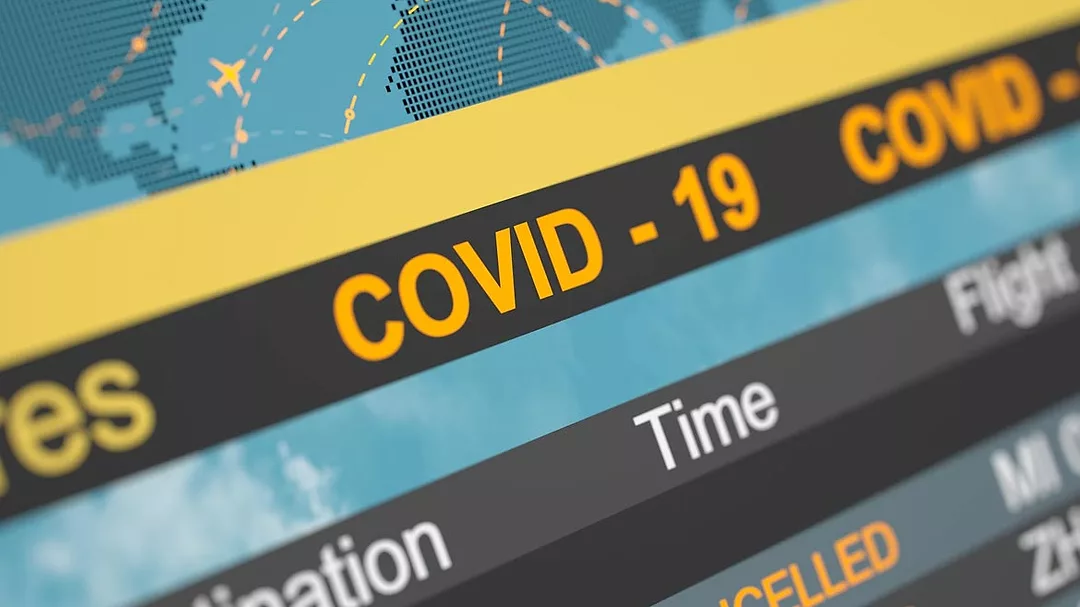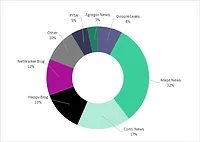Profile in Excellence
Fulfilling a mission: Securing travelers every day
On Call International Global Response Center Teams worked hand-in-hand to provide travel assistance to travelers in need.

Vertigo3d / E+ via Getty Images

Ben Longworth. Image courtesy of Longworth

Kristin Toth. Image courtesy of Toth
At the onset of the COVID-19 pandemic, millions of travelers and their families found themselves stranded and trapped as borders closed, flights were canceled, and restrictions and mandates were implemented in order to contain the spread of the virus. While On Call International (On Call) — a leader in travel risk management and assistance — regularly oversees hundreds of operations every month to protect organizations and their travelers, the COVID-19 outbreak significantly broadened the number of cases and nature of emergencies to which On Call responded. During the height of the pandemic, On Call’s Global Response Center teams helped manage more than 8,000 active cases and emergencies for travelers in need of assistance.
At the very heart of assisting travelers during this tumultuous time were members of On Call’s Global Response Center teams, who help facilitate and secure complex cases, helping to ensure travelers and their companions get the help they need, when and where they need it. The Global Security Team, in addition, supported On Call’s Medical and Transportation Teams, providing real-time, country-by-country intelligence on COVID-19 and corresponding travel restrictions. Both teams worked hand-in-hand to boost On Call’s operations and provide highly customized travel risk management services to assist travelers in need.
In particular, Ben Longworth, Director of Security, and Kristin Toth, Vice President of Operations, led their respective teams to excellence since the COVID-19 outbreak, taking a proactive and holistic approach to managing travel emergencies as they ensued.
As Director of Security, Longworth oversees all of the organization’s security analysis, consulting and response operations. Over his career at On Call, he has helped respond to significant events, such as the Brussels Attack; conducted security consulting projects in high-risk locations, such as Haiti and Niger; and led evacuations ranging from major hurricanes that have devastated the Caribbean, and now, to COVID-19 evacuations throughout the globe.
“Our mission has always been to help travelers in times of need, every day, and the COVID-19 pandemic has been no different,” Longworth says. Though the pandemic presented several challenges and barriers, the Global Security Team leveraged a network of global aviation resources, government contacts, collective intelligence capabilities and logistics to overcome the fluidity of the COVID-19 pandemic.
Between March 11 and March 14, On Call fielded 4,388 phone calls and opened 21 cases for security evacuations over those three days. Toth, who has served in various roles at On Call, including Senior Director of Operations, and now leads the Global Response Center Team, explains, “While we were handling this immense volume of cases to assist travelers worldwide, we managed to send our 24/7 Global Response Center Staff home to work remotely and stay safe as COVID cases grew in the United States. I am so proud of our team, and how we were able to continue to provide a high level of service during such an unprecedented time.”
After the U.S. Department of State (DOS) released a global travel advisory of Level 4: Do Not Travel, which advised U.S. citizens in the country and overseas to avoid all international travel due to the widespread impact of COVID-19, “multiple countries began to follow suit, and borders closed as COVID cases soared to 1 million worldwide,” Toth recalls. “Our teams continued to assist travelers around the world return to their homes before the borders closed. In March 2020 alone, we assisted over 200 travelers with commercial evacuations with the help of our dedicated travel desk. Once borders closed, we worked with various embassies worldwide to secure seats on charter flights to continue to evacuate travelers. Additionally, we secured several charter flights for travelers when commercial was not an option.”
Not only did the team overcome complex, location-specific medical screening and travel approval protocols, but they also helped travelers secure rescue nurse-to-nurse hand-offs in stringent travel windows and government-imposed immobilization efforts. “It was one of the most complex and challenging evacuations I’ve ever worked. The rapid changes in entry requirements and travel restrictions, border requirements, visa and proper paperwork arrangements, increased permitting fees and flight quarantine costs, and other COVID-related complications were severely challenging,” Longworth explains.
In addition to helping almost 2,000 travelers return home, On Call also supported expatriates and essential workers who had to remain abroad. “In these cases, we worked to continue to provide Medical, Security and Evacuation services to these travelers despite the closed international borders. We coordinated multiple medical evacuations across Asia, Africa and South America by working closely with our local partners, various ministries of health for emergency clearances and our vetted vendors around the world,” Toth says.
To further help travelers and their organizations make informed decisions in an extremely complex and fluid international travel landscape, Longworth oversaw a team of Global Security Specialists who helped to develop and support On Call’s Travel Restart and Location Monitoring Consulting Program — this included the creation and upkeep of On Call's COVID-19 Travel Outlook Map. The interactive map aggregates credible intelligence in critical areas that impact decisions around travel, including U.S. Department of State and Centers for Disease Control and Prevention advisory levels, COVID-19 case trends, travel restrictions and healthcare capabilities per the Global Health Security Index, which measures the capacities of 195 countries to prepare for epidemics and pandemics.
Particularly as On Call supports non-governmental organizations (NGOs), higher education institutions and corporations that look to expand their global operations, Longworth says, the Global Security Team augmented risk intelligence with the COVID-19 Travel Outlook Map to ensure organizations are up-to-date on the latest and most relevant risks encompassed within their internal travel risk management policies. Longworth explains, “We used the Travel Outlook Map to monitor the COVID-19 trends in each country, the status of hospitals and their capacities, social distancing, testing entry requirements and all different data points to help them facilitate their travel restart programs, ensure compliance with duty of care, and ensure the safety of their constituents.” In turn, organizations have increased their travel awareness and training programs and are empowered with the information they need to access immediate emergency assistance while abroad, particularly as countries impose restrictions due to new case increases and/or highly-contagious COVID strains.
The greatest lessons On Call learned from the COVID-19 crisis were adaptability and the importance of maintaining a concise and consistent communication drumbeat, Toth says. “Our Technology and Innovation teams worked daily to enhance overall traveler experience and enable us to save lives around the world. As we continued to innovate our internal technologies, it helped us take a deeper dive into the traveler’s experience and how the travel landscape was changing as a whole. The caliber of our employees, leadership, creativity and innovation contributed to the successful coordination from On Call's Global Response Center teams. Our hard work positioned us to navigate extraordinary circumstances during other crises.”
Longworth echoes Toth’s sentiments, adding, “As a company and as a team, we rose to the occasion and did an outstanding job in not only supporting one another, but also supporting a mass increase in emergencies that travelers and organizations faced. It was our finest moments at On Call.”
Looking for a reprint of this article?
From high-res PDFs to custom plaques, order your copy today!







